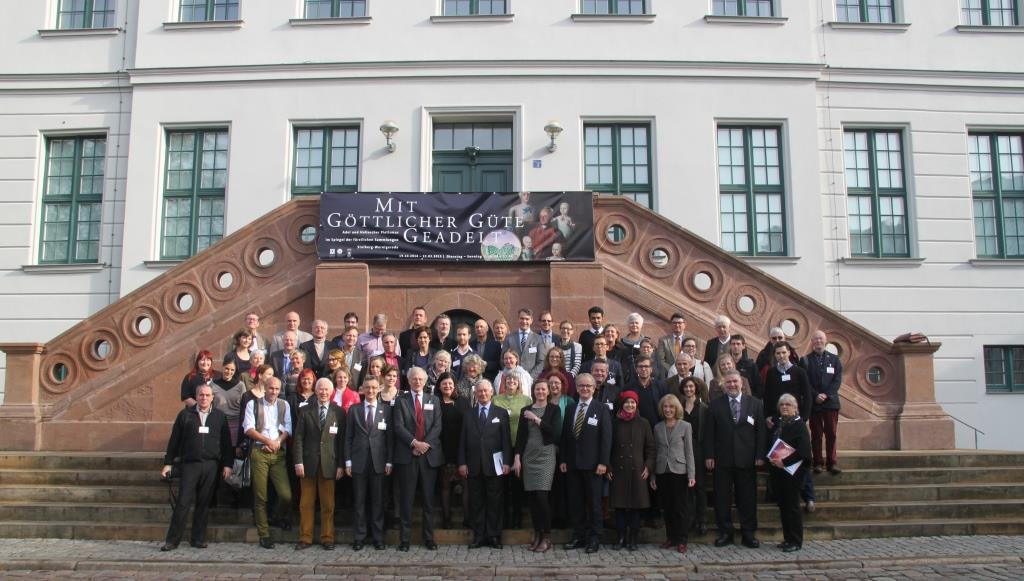More than one hundred delegates from over twenty different countries met to support religious heritage conservation in rural areas at the third biennial conference organized by Future for Religious Heritage (FRH) in Halle (Saale), Germany in October 2014, titled “Sustaining Europe’s Rural Religious Heritage”. They formulated the following statement to call for more attention to the topic in Europe.

1. We are proud of our religious heritage because:
There is a historic religious building in almost every village and town, often a beautiful landmark which is loved by local people. The local historic church, mosque, synagogue or temple contains the history of local people, their ancestors and the society in which we live, it tells the story of the community and provides a place for us to come together.
• Religious buildings are places of awe and contemplation which continue to embody and tell the story of faith in European societies, even when regular worship within them has been reduced or has ceased.
• Religious heritage was built by the community, for the community. It provides people today with a link to their past and to their future, it is part of a rich shared European identity and culture which both demonstrates our diversity and highlights common concerns.
• Religious heritage is vital for modern 21st century civil society, secular as well as religious, because our society needs local hubs, beauty, and a sense of belonging.
2. European rural religious heritage is at risk
Shrinking congregations, secularization of our societies, changing patterns of worship, other means of communication and public participation, reducing population in rural areas and financial constraints are the main factors. Also theft and vandalism remain a threat and sometimes increase when a building is underused or left empty. In some countries economic and social change are also leading to insensitive development which leads to loss of historic religious buildings.
The loss of movable heritage – the art and artefacts inside churches – is also a significant risk when changes occur or buildings are lost.
3. Protecting religious heritage brings great opportunities
It provides very special places at the heart of communities where people can come together and build a community. FRH’s activities, conferences and sharing of experiences have highlighted numerous ways in which protecting religious heritage brings opportunity, including:
• employment in repair, adaptation and the running of buildings
• the protection of traditional building skills
• the growth of cultural tourism: visitors to religious heritage are increasing every year
• volunteering and community capacity building
• venues for arts and cultural events
• reusing heritage, including religious heritage, reduces carbon footprint and energy use
• religious heritage provides special places which can bring together different parts of the community and promote tolerance and understanding
• religious heritage provides a calm, reflective space which benefits the wellbeing of individuals and communities
• religious heritage is also the best way to promote Europe’s wider cultural heritage because it is unique in its role in rural and urban communities.
4. Now is the time to act
The European poll (PDF)* shows that 75% of Europeans want us to act now. Our generation has the unique opportunity to save these great historic buildings and their stories for future generations.
• We call on European political leaders to recognize the potential of the religious heritage.
• We call on European religious leaders to keep this heritage accessible and open to a wider public.
• We will engage local communities and the public who will have the first say on the future of their own rural religious heritage.
• We need an alliance of mutual responsibility which includes all sectors of society of all faiths and also of non-believers to save rural religious heritage.
• We will put religious heritage into the mainstream of culture and heritage.
* Study conducted by Sociovision and Toluna, based on a poll in April, 2014 with 6.000 people over 18 from France, Germany, Belgium, The Netherlands, UK, Spain, Poland and Sweden.





Follow us: